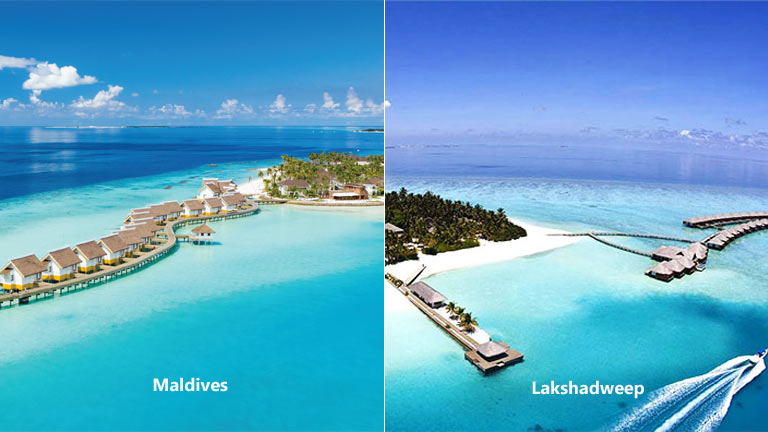
Modi with a great mind knows how to take benefits when someone says wrong about him. Madldives-Lakshadweep islands are another controversy just before elections.
Maldives-India controversy
The Maldives-India controversy is a diplomatic row that erupted after three Maldivian ministers made derogatory remarks about Indian Prime Minister Narendra Modi on social media. The ministers, who were suspended by the Maldivian government, called Mr. Modi a “clown”, a “terrorist” and a “puppet of Israel” in response to his visit to Lakshadweep, an Indian island chain. The comments sparked outrage and boycott calls against the Maldives on Indian social media, as tourism accounts for almost one-third of the country’s economy. India summoned the high commissioner of Maldives and expressed its displeasure over the incident. The Maldivian president Mohamed Muizzu, who took office in November 2023, has also been critical of India’s military presence in the Maldives archipelago and has sought to strengthen ties with China. The controversy has raised concerns about the future of the strategic partnership between India and Maldives, which is based on mutual interests and cooperation in various fields.
Maldives-Lakshadweep controversy impact on tourism and security in the Indian Ocean Region
The Maldives-India controversy is a recent diplomatic row that has sparked outrage and boycott calls among Indian tourists and citizens. The controversy started when three Maldivian junior ministers made derogatory comments about Indian Prime Minister Narendra Modi on social media, calling him a “clown”, a “terrorist” and a “puppet of Israel” in response to his visit to Lakshadweep, an Indian island chain.
The comments were deleted after the backlash, but the damage was already done. The Maldives government suspended the three ministers and issued a statement saying that their opinions were personal and did not represent the views of the government. The controversy has raised concerns about the impact of the dispute on tourism and security in the Indian Ocean Region (IOR), where India and Maldives have close ties. Tourism accounts for almost one-third of Maldives’ economy, and India is one of its largest sources of visitors. Many Indians on social media expressed their disappointment with the Maldives government and said they were cancelling their holiday plans in the country. Some Indian celebrities, sportspersons, and business founders also joined the boycott campaign.
The CEO of an Indian ticket-booking site announced that his company had suspended all flight bookings to Maldives². The controversy also comes ahead of President Mohamed Muizzu’s visit to China, which could signal a shift in Maldives’ foreign policy towards Beijing. China is Maldives’ largest trading partner and investor and has been expanding its influence in the region through initiatives such as ‘Belt and Road’ and ‘Asian Infrastructure Investment Bank. Some analysts have suggested that Muizzu’s visit to China could be seen as a sign of normalizing relations between Maldives and India, which have been strained by issues such as military presence, human rights, democracy, and climate change.
The Maldives-India controversy is an example of how sensitive issues can affect bilateral relations between countries in the IOR. It also highlights the need for dialogue and mutual respect between India and Maldives, as well as other stakeholders in the region. Both countries share common interests in maintaining peace, stability, security, development, and cooperation in the IOR. They also have historical, cultural, religious, and economic ties that should not be overlooked or undermined by any external or internal factors.





